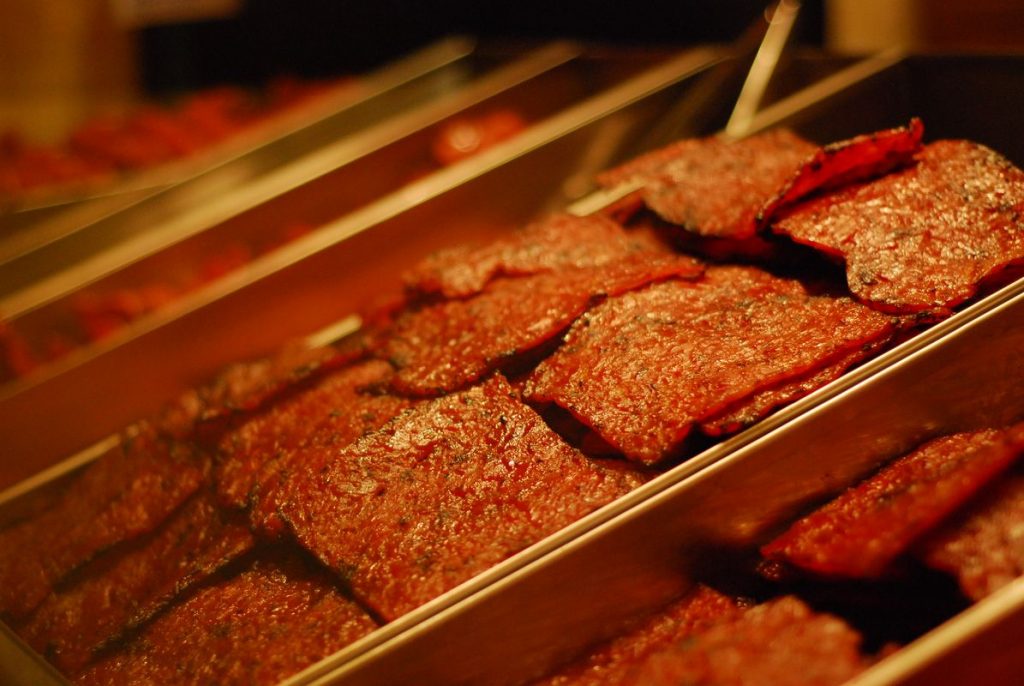It’s the time of the year again: Hunger Games for prized goods at the market, gambling wins, and an unsolicited flood of #ootds on Instagram. For me, the best part of Chinese New Year (CNY) is, without a doubt, the food.
Forget the quest for bountiful ang paos (if at all possible); seeing mountains of red-capped snack containers at the coffee table brings immense delight to my soul. A wide assortment is a must, with staples such as buttery pineapple tarts, flaky kueh bangkits, and eggy love letters. The best moment is opening a new container and sharing its contents with tender caution so that the baked goods remain delicately stacked upon one another even after rounds of passing amongst relatives.
Tasting the traditional snacks is a sacred ritual; the food allows us to intimately connect with our childhood memories and familial ties, especially if the intricate snacks are handmade. It satisfies our primordial desire for soulful flavours that linger gratifyingly in our mouths.
Unfortunately, our relationship with food is increasingly tainted by the diet industry’s mission to label food and demonise what it deems as “unhealthy”. Since when did food—a fundamental source of energy and happiness—become so complicated?
“You want kueh bangkit?”
“Wah it’s very sinful … eat already need to go gym.”
“Eh don’t eat la, it’s bad for you.”
It’s common to see images of glorious CNY staples accompanied by horror-inducing caloric numbers and the X number of steps/ X hours of fitness activity required to burn them. The energy intake from one’s consumption of two pineapple tarts is supposedly equivalent to 25 minutes of vigorous jumping jacks or cleaning the house for more than an hour. A slice of kueh lapis is calculated to warrant 1 hour 13 minutes of walking or 90 minutes of sweeping the floor.
Ate a piece of everything?
Oh, don’t fret about the additional 1505 calories. “To burn it off, walk 7hr 40min”.
Even if such oversimplified equations are scientifically proven, is it realistic to walk that much? Is there even enough dirt on the floor to sweep after that intense round of spring cleaning?
Food has become socialised into a categorical binary of good and bad. On top of this, “bad” food is now associated with exercises which are obviously unrealistic, unless you happen to be Marie Kondo on steroids.
Undeniably, these unattainable goals are meant to deter us from overindulging. Yet they seem to perpetuate feelings of inadequacy and guilt, either with our physical incapacity to carry out said exercise or our desire to nonetheless consume those snacks. Exercising becomes normalised as repentance for our diet “mistakes” or “cheats”, beyond motivations of good health and passion.
Sadly, diet culture has constructed a black hole of body image fixation. It pervades our consciousness and language, threatening to upend our sense of self. It messes with our innate relationship with food, which is supposed to be natural and carefree. We become chained to the ideals of perfection and self-control.

In the vernacular of diet culture, there are always ‘better’ alternatives. The Internet offers healthier versions of yu sheng, which “at least you’ll able to lo hei with less guilt”. This particular phrasing can easily trap a sane person into an unceasing pursuit for less, less, less.
Why do we need to obsessively eat something with less guilt?
Why can’t we enjoy food in its totality and move on?
The diet culture conveniently labels oil, sugar, and fat as the enemy, and even rice, for goodness sake. Sure, a war on diabetes is heroic, but please stop blaming white rice.
We seem to be afraid of food that keeps us both physically and emotionally satiated. Festivities are now stress-inducing, especially for some of us who are already conscious of our diets. As ridiculous as it sounds, we’re allowing an arbitrary number to rule our lives.
Yes, we cannot possibly be a cookie monster and monopolise all the CNY snacks without leaving some for others. That would be impolite. More importantly, that would be doing a disservice to our bodies.
However, we cannot be the whistle-blowing diet police who restrict all our cravings. We cannot adopt the toxic mindset of using exercise as a payback for the extra calories consumed. The key is balance and moderation, to wholly enjoy food without being excessive, and to understand that one’s worth is not associated with food.
Diet culture has abused the language used in our relationship with food and ourselves. It’s time for us to re-appropriate it back, starting this CNY.
So let’s thoroughly enjoy this festive season with our loved ones, without letting the labels and numbers get into our heads.
If you feel like eating that kueh bangkit, you know what? Just eat it.
How will you be indulging this Chinese New Year? Tell us at community@ricemedia.co.






